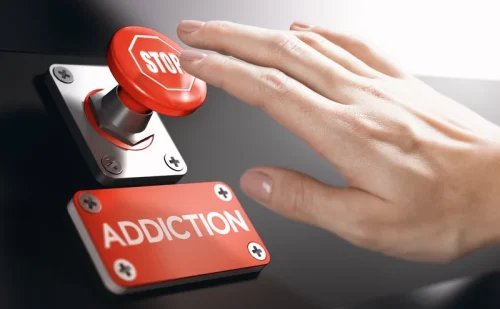
The problems relating to alcohol dependence are extensive, and its effects can be physical, psychological, and social. A person with AUD does not know when or how to stop drinking. They spend a lot of time thinking about alcohol and cannot control how much they consume, even if it is causing serious problems financially and at home or work.
- People who drink too much alcohol are at risk of developing a host of health conditions and disorders including certain types of cancer, liver disease, and heart disease.
- To diagnose AUD, people must meet at least 2 of 11 criteria described in the Diagnostic and Statistical Manual of Mental Disorders, 5th edition, text revision (DSM-5-TR) in the past 12 months.
- However, if you’ve been drinking alcohol heavily for a long time, experts advise that you do not stop drinking suddenly.
Journal Articles
Mutual-support groups provide peer support for stopping or reducing drinking. Group meetings are available in most communities at low or no cost, and at convenient times and locations—including an increasing presence online. This means they can be especially helpful to individuals at risk for relapse to drinking. Combined with medications and behavioral treatment provided by health care professionals, mutual-support groups can offer a valuable added layer of support. Drug abuse, including alcohol and prescription drugs, can induce symptomatology which resembles mental illness.
Is alcohol use disorder treatment different for pregnant women and mothers of newborns?
- Philip Jenkins suggests that there are two issues with the term “drug abuse”.
- Again, it’s not to discount completely that the GI side effects may play a role, but I would say that, if anything, they may be more contributing to.
- We can give you referrals to trusted support groups across the Chicago area.
- Regarding secondary outcomes, four out of five selected trials reported a significant reduction in body weight, BMI, and glycated hemoglobin levels in GLP-1 receptor agonist-treated participants.
This can occur both in the intoxicated state and also during withdrawal. In some cases, substance-induced psychiatric disorders can persist long after detoxification, such as prolonged psychosis or depression after amphetamine or cocaine abuse. A protracted https://ecosoberhouse.com/ withdrawal syndrome can also occur with symptoms persisting for months after cessation of use. Benzodiazepines are the most notable drug for inducing prolonged withdrawal effects with symptoms sometimes persisting for years after cessation of use.
What counts as heavy, moderate, and binge drinking?

A heavy drinking binge may even cause a life-threatening coma or death. This is of particular concern when you’re taking certain medications that also depress the brain’s function. If your pattern of drinking results in repeated significant distress and problems functioning in your daily life, you likely have is alcoholism a mental illness. However, even a mild disorder can escalate and lead to serious problems, so early treatment is important. In the ongoing clinical trial we’re doing in Maryland in my program at the NIH, we do just that. Of course, patients come to clinic weekly, so unless they have symptoms, typically we don’t see anything at the time.
The NIAAA Alcohol Treatment Navigator can help you connect patients with the full range of evidence–based, professional alcohol treatment providers. In general, treatments for alcohol use disorder aim to alleviate withdrawal symptoms, stop or reduce alcohol use, and give patients behavioral skills and knowledge that can help them either stop drinking or maintain a healthy level of alcohol use. If you feel that you sometimes drink too much alcohol, or your drinking is causing problems, or if your family is concerned about your drinking, talk with your health care provider.

- Because the value of PHDD has a positive skewness, we used the square-root transformed PHDD, consistent with prior analyses of A-CHESS16.
- It can have extreme effects on people’s personal and professional lives, even in mild cases.
- You and your community can take steps to improve everyone’s health and quality of life.
- The 2 criteria to make the diagnosis center around the patient experiencing withdrawal symptoms when not drinking alcohol and tolerance or requiring an increasing amount of alcohol to achieve the same effect.
Some people may drink alcohol to the point that it causes problems, but they’re not physically dependent on alcohol. Return to drinking after a period of abstinence is a possibility for those with alcohol use disorder. This disorder makes changes in the brain that can make drinking very hard to give up. If you have alcohol use disorder, you might feel very discouraged if you return to drinking. If you’re living with alcohol use disorder, you might be tempted to quit “cold turkey,” or immediately. However, if you’ve been drinking alcohol heavily for a long time, experts advise that you do not stop drinking suddenly.
What is alcohol use disorder, and what is the treatment?
What’s more, according to the Centers for Disease Control and Prevention (CDC), excessive alcohol use leads to over 95,000 deaths in the U.S. every year. Be prepared to discuss any problems that alcohol may be causing. You may want to take a family member or friend along, if possible. In some people, the initial reaction may feel like an increase in energy. But as you continue to drink, you become drowsy and have less control over your actions.
- They spend a lot of time thinking about alcohol and cannot control how much they consume, even if it is causing serious problems financially and at home or work.
- However, peer mentoring had minimal additional effect compared to self-monitored use in this study, perhaps because isolation is not as prevalent as it often becomes for persons with more severe AUD.
- Long-term alcohol use can produce changes in the brain that can cause people to crave alcohol, lose control of their drinking and require greater quantities of alcohol to achieve its desired effects.
- For example, just anecdotally, I will tell you that in the clinical trial we are conducting right now at the NIH Intramural Research Program, for which I’m the principal investigator (PI), we are going up to 2.4 mg — the highest dose of semaglutide.
- Alcohol causes and worsens many medical conditions, as discussed below.

